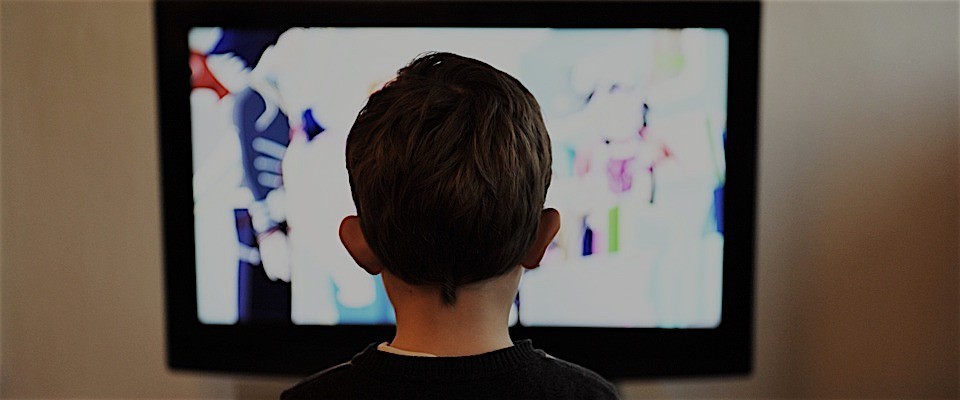12 Promises of the Sacred Heart of Jesus
June 13, 2017Patrick J. Buchanan: Are We Nearing Civil War?
June 13, 2017
Instead of detailing the role-modeling of Stephen Colbert and rappers, I present my son with alternatives. The mothers and fathers here may wish to do the same. Here is a list of films and TV shows…
By Mark Bauerlein, First Things, 6 . 9 . 17 – The daily progress of my son toward adolescence pushes the question of his future manhood ever more urgently on his parents. Every time he encounters a television screen (we don’t have one at home), hears a hip-hop song blasting out of a car creeping down the street, spots a billboard or posters peddling clothes, new movies, the NBA and NFL, or automobiles, or goes to the web and catches ads for the latest games and videos of scandals and embarrassments, he observes bad behavior and bad words and bad values. The old virtues of manhood are missing—no courtliness, strong silent types, men of substance, or sprezzatura. Instead, youth culture teaches boys to become … bigger boys: loud, sarcastic, effeminate, touchy, vain, smart-alecky, and raunchy.
Instead of detailing the role-modeling of Stephen Colbert and rappers, I present my son with alternatives. The mothers and fathers here may wish to do the same. Here is a list of films and TV shows that, I think, are just right for 10-to-13-year-old boys:
The Plainsman (1936) — Gary Cooper as Wild Bill Hickok.
The Great Escape (1963) — The spare conversation of prisoners in this drama is itself a worthy antidote to the juvenile volubility of teen heroes today.
The Magnificent Seven (1960) — Another John Sturges effort, notable for Charles Bronson’s mini-lecture on how much more strength it takes to be a father than to be a gunfighter. (If your son can handle subtitles, the original Seven Samurai is fantastic.)
The Ten Commandments (1956) — Yul Brynner’s pharaoh is a living lesson in the pitfalls of stubborn authority.
The List of Adrian Messenger (1963) — The resolute pursuit of a killer without all the lurid silliness of today’s murder mysteries.
The Fugitive (1963-67) — Not the mediocre movie with Harrison Ford, but the TV show with David Janssen, which teaches the merits of keeping your mouth shut and your demeanor modest while retaining your moral scruples.
The Mark of Zorro (1940) — The adventure film with Tyrone Power and the great Basil Rathbone as the villain, which shows boys the wisdom of delayed reactions to complicated situations.
Star Trek (1966-69) — Yes, the original series with William Shatner, who nicely displays leadership at work, specifically in the handling of talented but conflicting underlings (you should skip the episodes that are heavy on sex themes, though).
Get Smart (1965-70) — My son and I have laughed at every stupid joke and predictable pratfall, but there is a point to them: Most of the time the humor is directed at the very vanities and all-too-human errors that fill youth culture today.
Jason and the Argonauts (1963) — The moment when the iron giant comes to life shows how unnecessary are the computer graphics and special effects on which digital-age adventures rely.
The Crimson Pirate (1952) — Burt Lancaster at his energetic heights, the perfect corrective to Johnny Depp’s irritating pirate.
Adventures of Robin Hood (1938) — When Robin Hood gets dunked in the water by Little John, he doesn’t whine or rage; he laughs.
Gentleman Jim (1942) — Errol Flynn again, as heavyweight champ Jim Corbett, who brings the art of footwork into the ring, and whose boastfulness is nicely curbed in a post-fight encounter with John L. Sullivan.
Jesse James (1939) — Tyrone Power and Henry Fonda as the James brothers, short on history but long on character.
Appointment with Destiny (1971-73) — A wonderful TV series of pseudo-documentaries about historical incidents, including Appomattox, the OK Corral, John Dillinger, and the attempted assassination of Hitler.
The Red Badge of Courage (1951) — A nice rendition of Stephen Crane’s novel by director John Huston.
Stalag 17 (1953) — Among other things, an interesting study in cynicism, in which the cynic eventually steps forward to risk himself and save a comrade.
Mark Bauerlein is senior editor of First Things.
Become a fan of First Things on Facebook, subscribe to First Things via RSS, and follow First Things on Twitter.
https://www.firstthings.com/blogs/firstthoughts/2017/06/what-should-boys-watch




